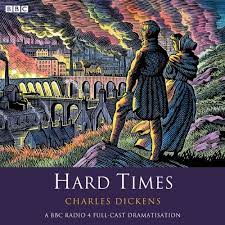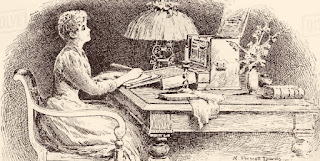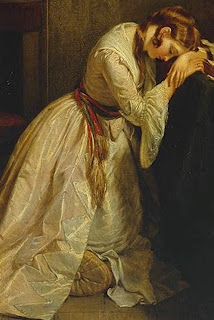The Rover or The Banish'd Cavaliers is a play by the English author Aphra Behn. It deals with the amorous adventures of a group of Englishmen and women in Naples at Carnival time. For more information you can check out this study guide or read the play here. This blog is a thinking activity based on the play, assigned by Megha Ma’am.
1. Angellica considers the financial negotiations that one makes before marrying a prospective bride the same as prostitution. Do you agree?
In the play, Angellica is a prostitute, which involves engaging in romantic and sexual relationships with clients for financial gain. In prostitution, a person exchanges their time and energy for money, with no regard to personal preferences.
When money is involved in marriage proposal, a similar situation is created. In many cases, the only focus of both parties is money. The couple’s age, education, interests, personalities, none of these seem to matter. An example of this, from the play “The Rover”, is the marriage arrangement between Florinda and Don Vincentio. Florinda is a young girl (who is in love with someone else) whereas Don Vincentio is an elderly man. Still Florinda’s father wants this relationship, the reason is Don Vincentio’s money.
Many such scenarios are available in real life as well. In these situations, either the girl or the boy marries solely for the sake of money. This sometimes results in ill-matched couples.
In most of these cases, the highest bidder gets the prize, or in this case, the bride. So yes, I agree with Angellica on this aspect.
2. “All women together ought to let flowers fall upon the tomb of Aphra Behn, for it was she who earned them the right to speak their minds.” Virginia Woolf said so in ‘A Room of One’s Own’. Do you agree with this statement? Justify your answer with reference to your reading of the play ‘The Rover’.
Yes, I agree with Virginia Woolf's statement that Aphra Behn earned women the right to speak their minds.
Aphra Behn wrote “The Rover” at a time when women were expected to be silent and submissive. She was one of the first female writers to challenge these expectations. Her plays and novels paved the way for other women writers to speak their minds and to tell their stories.
She told stories of strong female characters with their own decision making power. There are many examples in “The Rover” of women speaking their mind and standing up for themselves. For example, when Helena is first introduced to Willmore, she tells him that she is not interested in him. She says, "I am not here to be courted, but to divert myself." Later in the play, when Willmore tries to kiss her without her consent, she slaps him in the face. She says, "I will not be forced into anything I do not want to do." In this way, independent, outspoken characters are portrayed in the play.
Behn also uses the play, to explore the issue of female desire. Her female characters are not ashamed of their sexual desires, and they are not afraid to pursue them. This was a radical idea in Behn's time, when women were expected to be passive and submissive.
By challenging traditional gender roles and by creating strong female characters, Behn helped to earn women the right to speak their minds. Her work was an inspiration to other female writers. She was a true pioneer, and she helped to earn women the right to speak their minds.
3. Which female character best represents the playwright, Aphra Behn? Consider the characteristics and beliefs of each female character, and make an argument that relates these distinctive attributes to what you know about Behn.
I personally think, “Hellena” from “The Rover”, best represents the playwright Aphra Behn. There are a few reasons for this. They are given below :-
1. Courage
Hellena is a very courageous woman. She is not afraid to stand up for what she believes in, even when it is dangerous to do so. Aphra Behn was also a very courageous woman. She dared to challenge the status quo and to write at a time when women weren’t allowed such independence. According to some historians, it is possible that she was a spy for her country. This profession also demands courage.
2. Independence
Hellena is a very independent woman. She is not afraid to live her life on her own terms, and she does not rely on men for support. Aphra Behn was also a very independent woman. She was one of the first female writers to earn a living from her work, and she was also a successful businesswoman.
3. Wit
Hellena is a very witty woman. She has a sharp sense of humor, and she is not afraid to use it to challenge the status quo. Aphra Behn was also a very witty woman. Her plays and novels are full of sharp wit and social commentary.
4. Possibility of being a Nun
According to Angeline Goreau, (who wrote “Reconstructing Aphra : a social biography of Aphra Behn”) Behn may have had a Catholic upbringing. She once commented that she was "designed for a nun”. As we know, Hellena was also being prepared to be a nun. But both, Hellena and her creator, abandoned that thought.
Hence, Hellena and Aphra Behn share many similarities.
For more information regarding the play you can check out this video lecture.



































